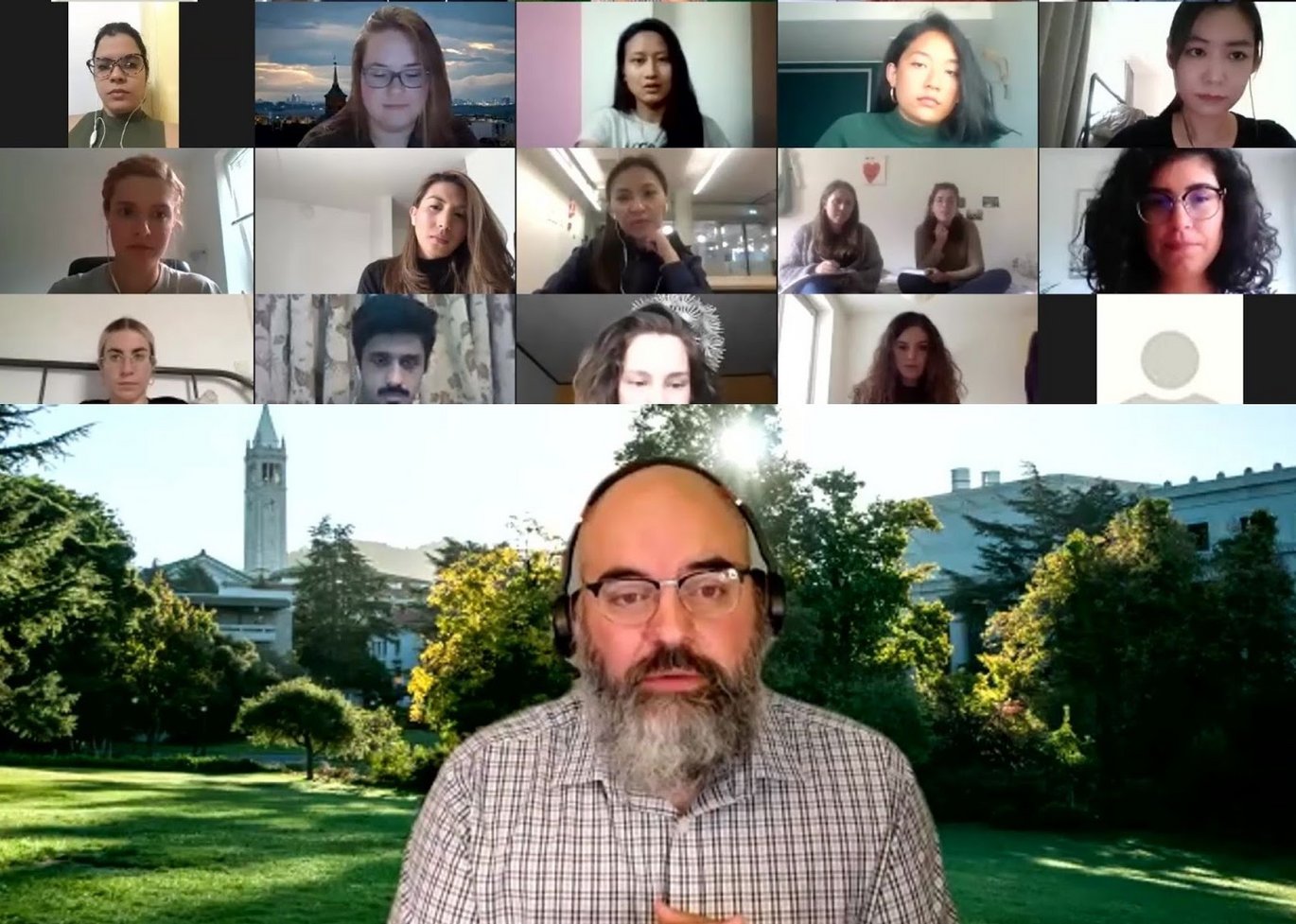Back to school with online guest lectures: Online Investigative Journalism and Responsible Pandemic Reporting
Jeremy Rue (Berkeley School of Journalism) and Catriona Bonfiglioli (University of Technology Sydney), unable to go on their habitual spring trip to Aarhus because of the pandemic, held two guest lectures via Zoom for Mundus students and alumni in August.

At Mundus Journalism, we consider interchange of knowledge and research essential elements for fueling the debate on the present and the future of journalism. Attending a programme with a consortium of 11 universities from all around the world, students are used to being confronted with different, and thus enriching approaches stemming from both academic and cultural diversity.
It is normal, then, to go to class in Aarhus and welcome professors from Amsterdam, Sydney or Berkeley, attend their guest lectures and discuss new trends or threats in journalism studies - perhaps, it would be more accurate to say it was normal, because COVID-19 pandemic and the travel restrictions connected to it have affected the process somewhat.
In the beginning, some guest lectures had to be cancelled or postponed, but once professors took up and became familiar with online teaching, it became relatively easy and convenient to organise lectures and workshops via Zoom sessions throughout the past months.
The most recent guest lectures happened on 27th and 28th August and they made up an insightful and exciting “back to school” session, as the new academic year is approaching; the first one was given by Jeremy Rue, Associate Dean of Berkeley School of Journalism, one of Mundus Journalism’s oldest partners, and it explored the complex yet fascinating world of online investigative journalism. The second one was a seminar led by Dr. Catriona Bonfiglioli, senior lecturer at University of Technology Sydney (another Mundus Journalism partner), which combined the discussion of the pandemic coverage in the midst of a "misinfodemic" and some exercises focusing specifically on ethical and health issues in reporting COVID-19.
Thess Mostoles, one of the two Mundus students who spent the Spring 2020 semester in Berkeley and got the chance to attend one of Rue’s classes, sent a message to the Mundus network recommending his online lecture: “If I may, I'd like to recommend Jeremy Rue 100%. He is a fantastic professor. So, if you can make it that day, don't hesitate. It is a pity the situation didn't allow him to go to Aarhus, but this is a great opportunity for other Mundusians to learn from him as well. Don't miss it.”
It seemed her recommendation plus the reputation and work of Rue had the intended effect and many students and alumni attended the class and engaged in the debate about the dichotomy between advocating for more access to information and data in order to uncover wrongdoings and protection of personal privacy. “In journalism, accuracy is an essential and fundamental quality, we believe a lot in being trustworthy: that’s the one thing we can hold on to, that gives us a reputation” said Rue after showing how footage and photos can be fact-checked looking at metadata and using specific digital tools, i.e. Google Image, FotoForensics and SunCalc. For both emerging and seasoned journalists, it is very interesting to reflect on how many data can be found in photos, videos and social media and how these can be used to fact-check, verify and corroborate a story.
Speaking of the coverage of the pandemic, so many contrasting and even scaremongering news items have appeared in newspapers, on TV and in online publications - let alone social media. So, how can we navigate the current media landscape while addressing the ethical challenges connected to health journalism? This was the question Bonfiglioli explores during her seminar with 55 Mundus students and alumni who were connected via Zoom. With 15 years of journalistic experience during which she specialized and worked in health journalism for 7 years, Bonfiglioli conducted research on Covid-19 coverage and asked students to reflect on different pieces of news and cartoons featuring fear, blame and conflict.
Then, she showed different reporting guides that were made to help journalists in responsible coverage of the pandemic, i.e. the one made by the Walkley Foundation or her own piece published on the Journalism Education and Research Association of Australia (JERAA) website, including the ones made by PAHO and The Global Investigative Journalism Network. “There are two types of resources: the “here and now” tips, which will help you answer your questions, and those guides full of links and resources, not telling you what to do and what not to do, but telling you how to find out” she explained.
In order to make the seminar more interactive and personable, towards the end of the session the students were divided into groups and asked to discuss how they would behave in different scenarios where they were faced with ethical challenges related to reporting on the pandemic.
Many interesting stimuli are always present during guest lectures and discussions between students, alumni and journalism professors from Mundus network and the online-guest-lecture experience just confirmed how the program is always committed to further develop a system based on interchange of knowledge, research and intercultural perspectives.
Thank you to everybody who took part in the events! If you are a current student or an alum and want to be updated on the next guest lectures and projects, please join the Mundus Alumni facebook group.